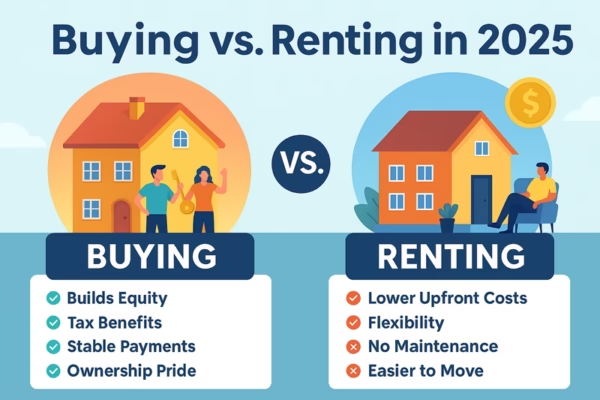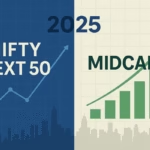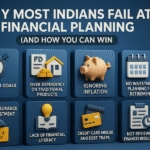📌 Introduction: The Age-Old Indian Dream
For generations, buying a house has been viewed as the ultimate sign of financial stability in India. But in 2025, with sky-high real estate prices, shifting job locations, and emerging financial instruments—is it still a smart investment?
Let’s break it down using data, personal finance logic, and what investors should consider before committing to that dream flat or villa.
💸 Real Estate Market in 2025: A Snapshot
- According to Knight Frank India, residential property prices rose by 6-10% YoY in major cities.
- Rental yields still hover around 2–3%, far below returns from equities and mutual funds.
- Real estate demand in Tier-2 and Tier-3 cities is rising due to remote work and affordable pricing.
📊 Table: Average Property Prices in 2025 (per sq. ft)
| City | Average Price (₹/sq. ft) | YoY Change (%) |
|---|---|---|
| Mumbai | ₹21,000 | +8% |
| Bengaluru | ₹13,500 | +6.5% |
| Hyderabad | ₹10,200 | +9% |
| Pune | ₹9,500 | +5.8% |
| Indore | ₹4,200 | +10% |
🤔 Should You Buy or Rent?
Use the Buy vs Rent Rule:
If annual rent < 2.5% of the property’s value, renting is cheaper.
Example: A ₹1 Cr house with ₹25,000/month rent = ₹3 L/year = 3% → borderline decision.
💡 Use Home Affordability Calculator to check what’s right for you.
🔍 Pros of Buying a House in India 2025
- Emotional Security: Owning a home brings psychological comfort and long-term stability.
- Asset Appreciation: Property value can grow over time in emerging areas.
- Tax Benefits:
- Section 80C: ₹1.5L deduction on principal repayment
- Section 24(b): ₹2L on home loan interest
- Freedom to Renovate: Unlike rentals, you can personalize your home freely.
- Legacy Asset: Long-term ownership builds intergenerational wealth.
⚠️ Cons of Buying a House in India 2025
- Low Liquidity: Selling property is neither fast nor easy.
- High EMIs: Ties up cash flow and reduces flexibility for other investments.
- Hidden Costs: Registration, maintenance, property tax, society fees, etc.
- Underwhelming Returns: Average annual appreciation is 5–7%, vs 10–15% in equity mutual funds.
- Geographical Rigidity: Limits mobility in a fast-changing job market.
🔄 Opportunity Cost: Home vs SIP
| Criteria | Buying a ₹1 Cr Home | SIP in Mutual Funds (₹50K/month) |
|---|---|---|
| Down Payment | ₹20L (20%) | ₹0 |
| EMI (20 yrs @ 8.5%) | ₹86,000/month | ₹50,000/month |
| Expected Value (20 yrs) | ₹2.5 Cr (appreciation) | ₹3.7 Cr (at 12% CAGR) |
| Liquidity | Low | High |
| Maintenance & Taxes | ₹15,000/year avg | None |
📈 SIP wins in liquidity and returns. But a house offers living space + asset value.
🧠 Mindset Shift: Home as a Lifestyle Choice, Not Investment
In 2025, treat buying a house as a lifestyle expense, not just an investment. Ask:
- Will I stay here for at least 10–12 years?
- Does it support my work/family goals?
- Am I financially ready?
🏘️ Alternatives to Buying Property
- REITs (Real Estate Investment Trusts): Invest in real estate and earn dividends—without owning property.
- Equity Mutual Funds: Long-term growth with liquidity.
- Hybrid Funds: Balance of debt + equity.
- Rent + Invest: Live in a rented home and invest the rest.
✅ When Buying a House Makes Sense in 2025
- You’re getting a great deal in a developing locality.
- You’re eligible for PMAY benefits (Pradhan Mantri Awas Yojana).
- You plan to stay long-term and make it your primary residence.
- You’ve cleared other debts and have an emergency fund in place.
📚 Related Articles on Money Advisor
📣 Conclusion: Buy Smart, Not Blindly
In 2025, a house can still be a wise investment—if done with purpose, research, and financial readiness. But blindly following old wisdom can lead to debt traps and missed investment opportunities.
🏁 Takeaway: Make the “own vs rent” decision based on math—not emotion.
🔔 Call to Action
Still unsure whether to buy or rent in 2025?
📥 Subscribe to our newsletter for personalized financial insights, home loan calculators, and expert comparisons.
📞 Need 1:1 help? Contact us today for a home-buying strategy built around your goals.
📢 Disclaimer: “Money Advisor is operated by a SEBI-registered Mutual Fund Distributor (ARN-129675). The content on this blog is for informational purposes only and should not be considered as investment advice. Mutual Fund investments are subject to market risks. Please read all scheme-related documents carefully.”




